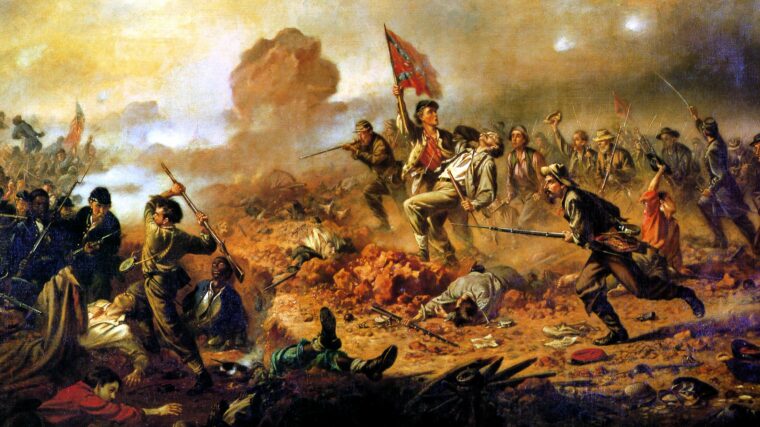
Appomattox
Bloody Fiasco at the Crater
By Arnold BlumbergIn the summer of 1864, after six weeks of virtually constant combat in the Wilderness area of northern Virginia, the Union and Confederate armies of Ulysses S. Read more

Appomattox
In the summer of 1864, after six weeks of virtually constant combat in the Wilderness area of northern Virginia, the Union and Confederate armies of Ulysses S. Read more
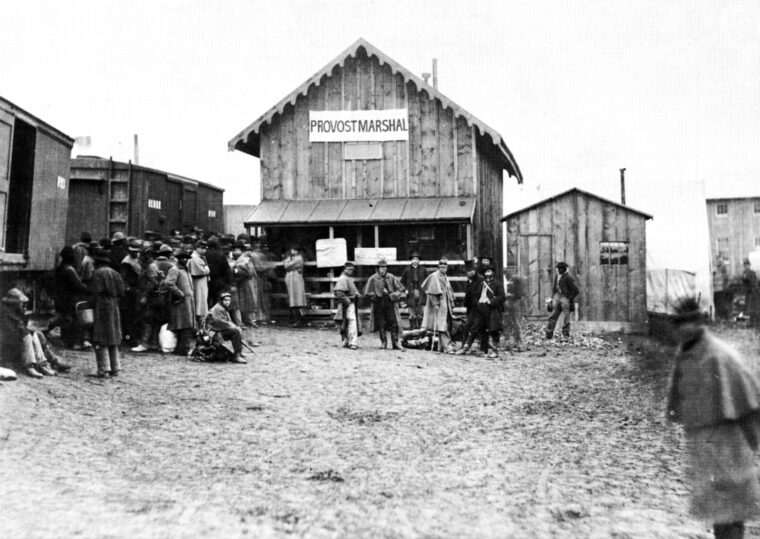
Appomattox
With the bombardment of Fort Sumter in April 1861, the Civil War began in earnest. The first recruits, on both sides, were completely uninitiated in the ways of military life. Read more
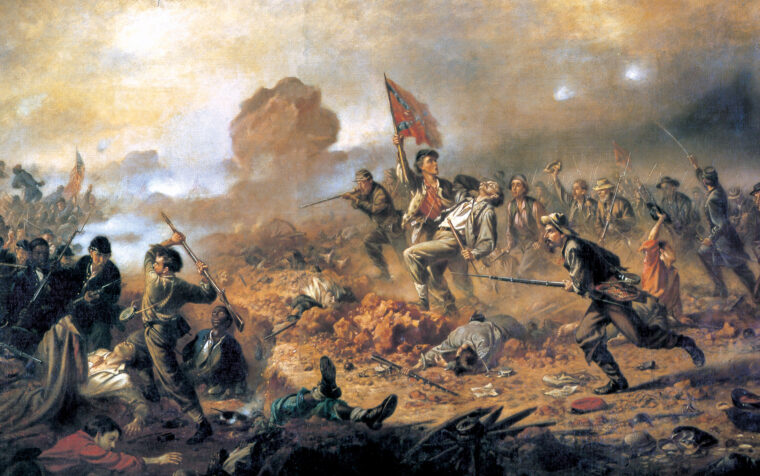
Appomattox
It was just after 3 am on Saturday, July 30, 1864. A month of relative quiet along a two-mile stretch of Union and Confederate trench lines immediately east of Petersburg, Virginia, was about to come to an explosive end. Read more
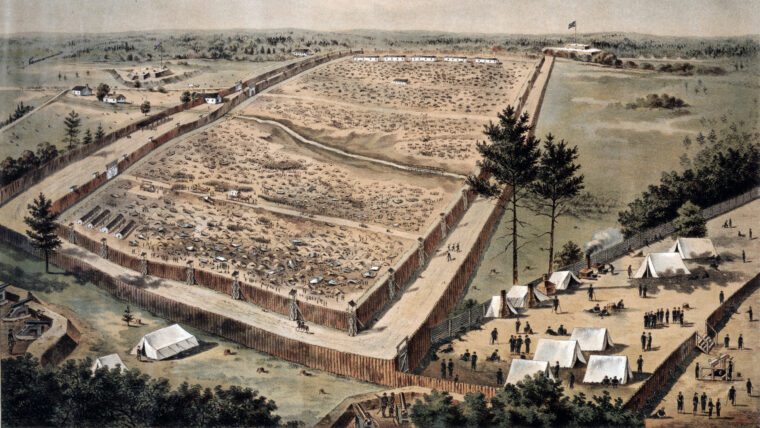
Appomattox
The June 19, 1861, editorial in the Charleston Mercury newspaper warned: “War is bloody reality, not butterfly sporting. Read more
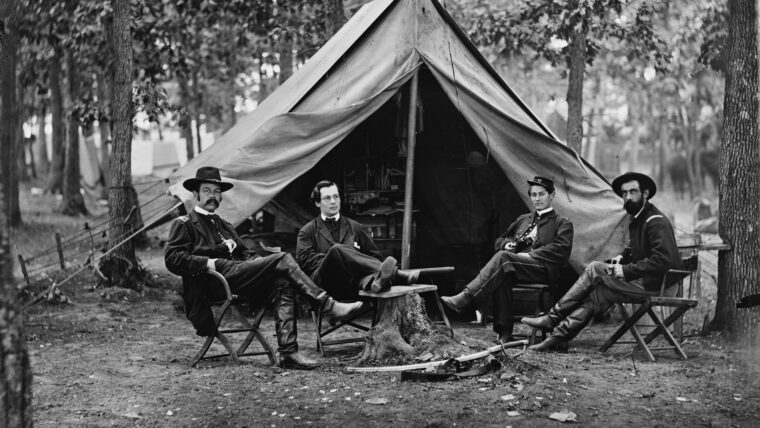
Appomattox
The Union officer saw it quite clearly across the Rappahannock River: a hand-painted sign held up by a Rebel soldier that read, “Burnside and his pontoons stuck in the mud. Read more
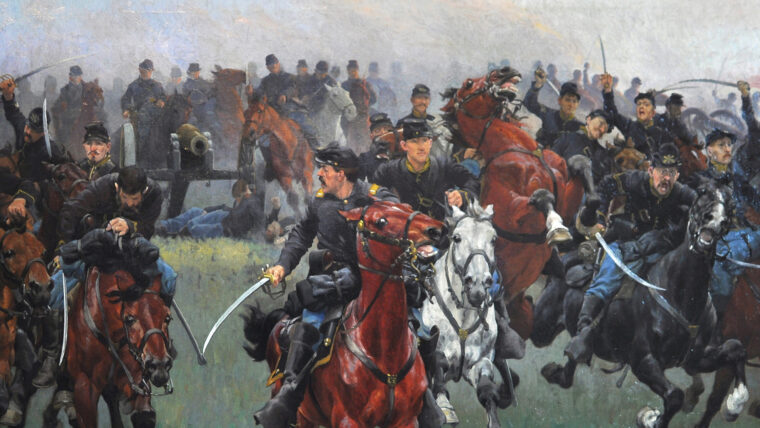
Appomattox
The celebrated 2nd U.S. Cavalry, like its brother regiment the 1st U.S. Cavalry, was formally created by an act of Congress in March 1855. Read more
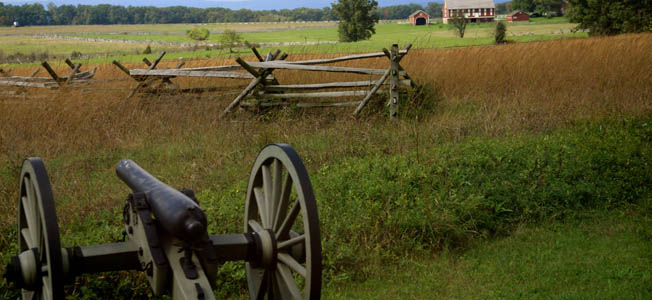
Appomattox
The American Civil War was the tragic culmination of divergent perspectives on the proper conduct of the government of the United States and socio-economic issues that had been frequently at the forefront of American political life for decades. Read more
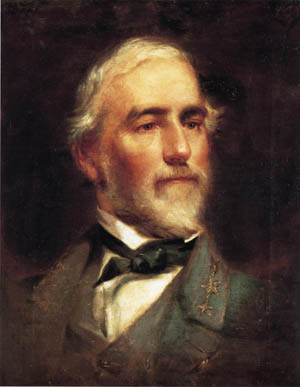
Appomattox
When the Civil War broke out, Robert E. Lee of Virginia was offered command of the Union army. Read more
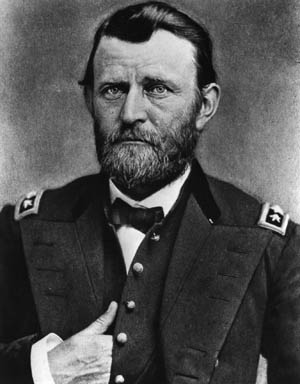
Appomattox
Born in Ohio in 1822, Ulysses S. Grant graduated from the United States Military Academy at West Point in 1843. Read more
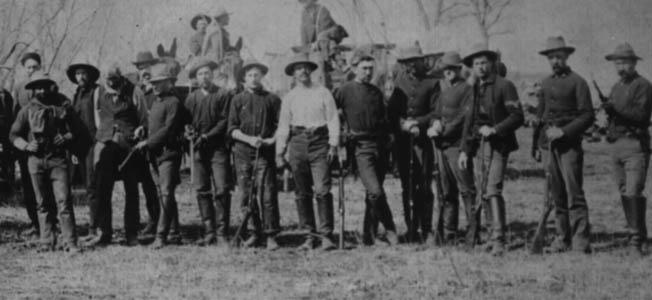
Appomattox
In 1864-1865 the U.S. Army had some 1,045,000 men in uniform; within a year after Appomattox, the number stood at 57,000. Read more
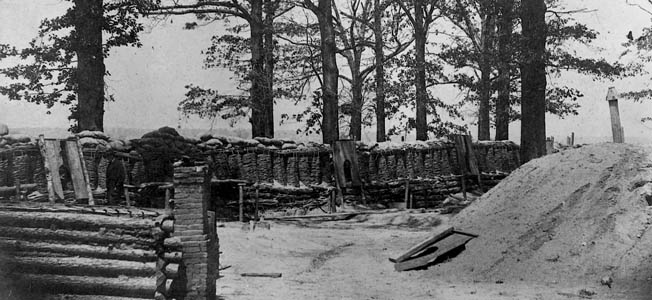
Appomattox
In selecting a leader for the attack on Fort Stedman, Robert E. Lee could scarcely have chosen a better commander than Maj. Read more
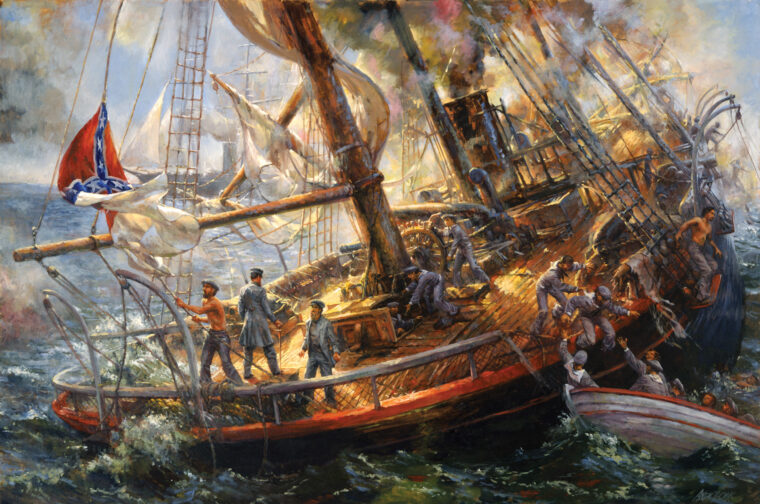
Appomattox
On August 24, 1862, newly promoted Captain Raphael Semmes of the Confederate States Navy called his largely English crew to the quarterdeck of his new command, the 220-foot battle cruiser Alabama, lying off the coast of Terceira in the Azores. Read more
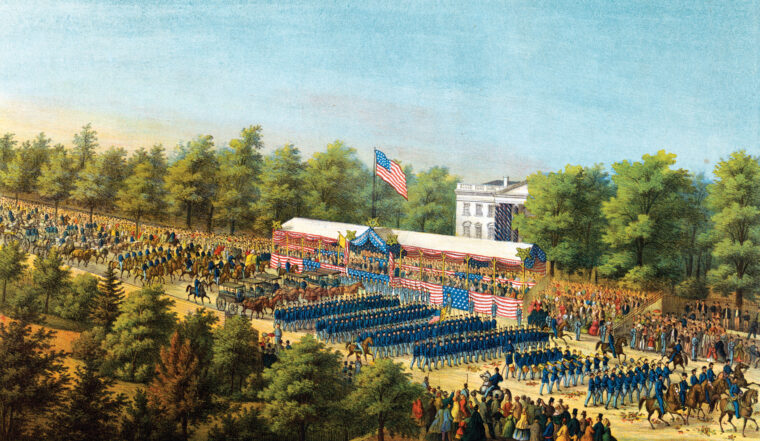
Appomattox
Robert E. Lee’s surrender at Appomattox, presaging the subsequent surrender of other Confederate forces in the West and the capture of Southern President Jefferson Davis a few weeks later, marked the triumphant end of the nation’s great sundering. Read more
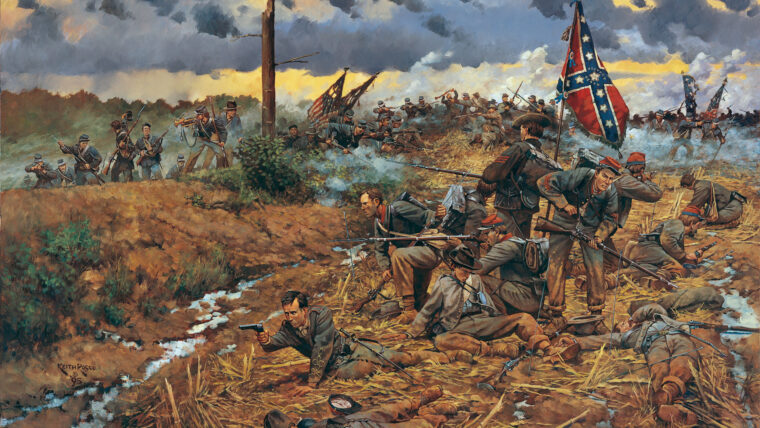
Appomattox
Four hundred Confederate sailors and marines, their small arms loaded and ready, awaited their orders. Some men had their cutlasses within easy reach. Read more
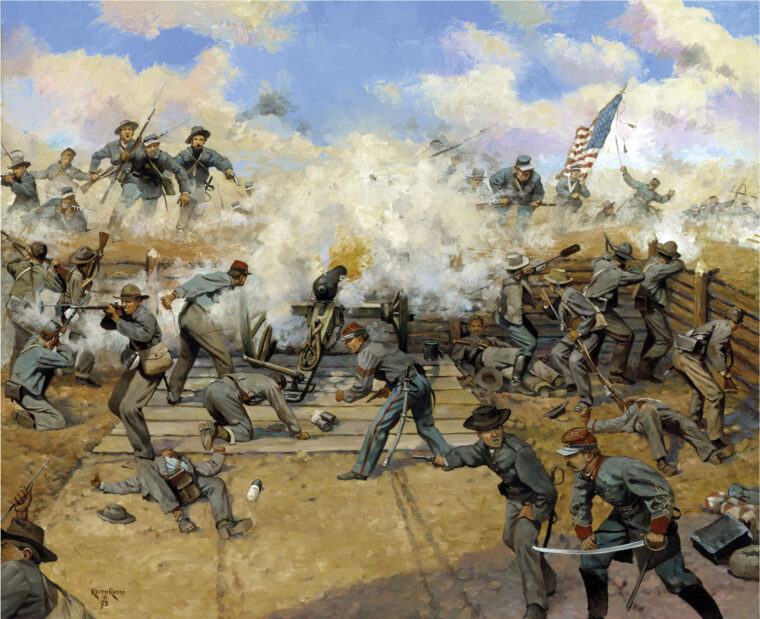
Appomattox
Lieutenant Colonel Horace Porter, personal aide to Lt. Gen. Ulysses S. Grant, maneuvered his mount past ammunition wagons, ambulances, stragglers, and prisoners jamming the muddy roads leading back to headquarters from Five Forks, Virginia, on the evening of April 1, 1865. Read more
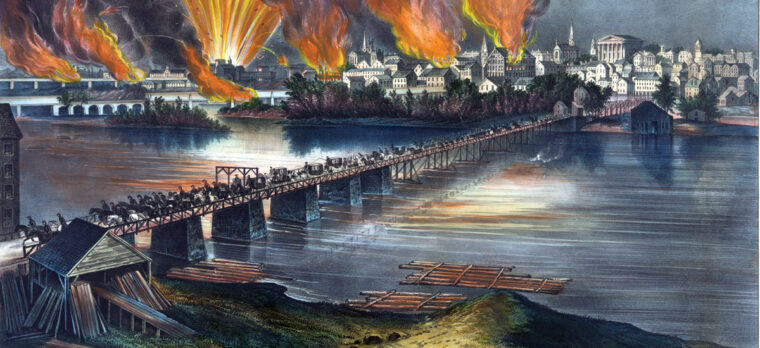
Appomattox
When the end came, on April 2, 1865, Confederate President Jefferson Davis was sitting in his customary pew at St. Read more
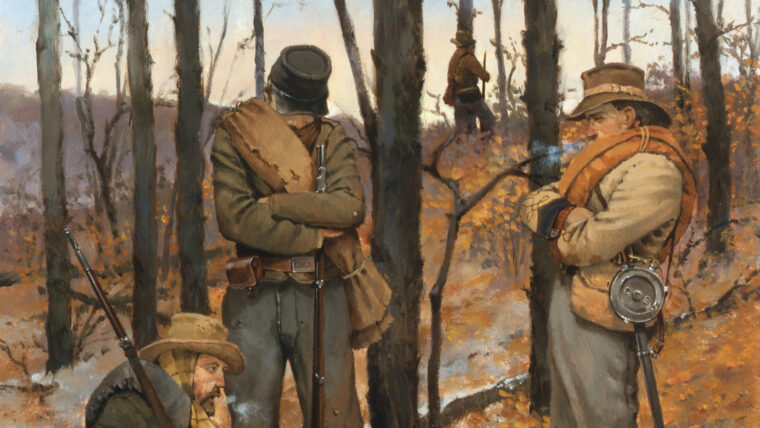
Appomattox
The unrelentingly harsh winter of 1864-1865 gave no respite to Virginia’s war-torn Shenandoah Valley. Heavy snows and frigid temperatures made travel difficult, and the two opposing armies found themselves literally frozen into place, 90 miles apart and in no particular hurry to get at each other again before the weather broke. Read more
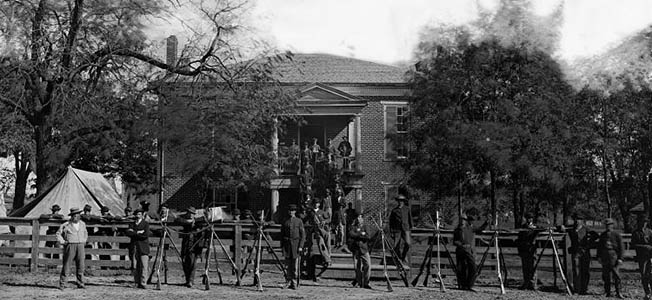
Appomattox
When Confederate General Robert E. Lee learned on the morning of April 9, 1865, that Union infantry was both in front and behind of his meager army of 12,500 effectives as it approached Appomattox Court House in central Virginia, he resigned himself to the sad task before him. Read more
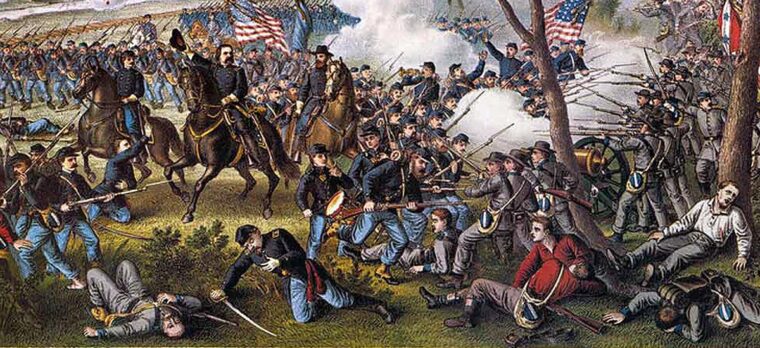
Appomattox
The Battle of Champion’s Hill was a pivotal event in the American Civil War. Ulysses S. Grant would pursue the retreating Confederate army to an area 20 miles east of Vicksburg, bringing about the Siege of Vicksburg and the Confederates’ surrender. Read more
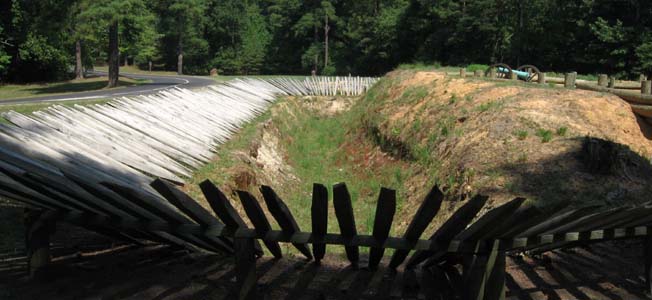
Appomattox
When you mention the Petersburg campaign to someone familiar with Civil War battles, chances are the discussion will turn to the Battle of the Crater. Read more